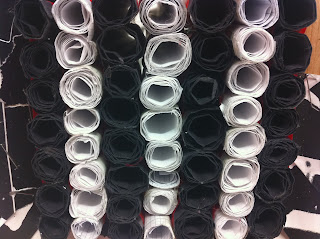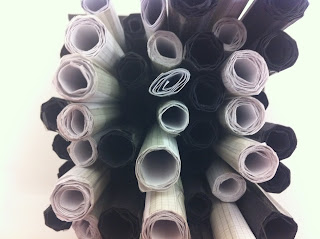My Great FEAR!
Well, life feels pretty mental at the moment. I am on my last ever project as a student and honestly the fear is kicking and my head is in over drive with thoughts about my future and the path I hope to go down. I am a very confident person on the outside and this is the person I always strive to show the world but often inside I feel like a shy child again. I need to strengthen my confidence in my abilities as the doubt of failure is kicking in often now with my graduation looming and my career path unknown. I say to the world I will make it, but I want to truly believe this myself. I guess what it all boils down to is fear, the fear of the unknown. I like to plan and not knowing where my life is heading scares me more then I would like to admit.
(Writing this feels strange, I would never be able to say this to anyone face to face but yet it seems easy to write it down for all to see.)
The one thing I can plan for is New Designers as I know I will be showing their this year. This is exciting as last year I helped out to see what all the fuss was about and felt deeply inspired and moved by the designers exhibiting. Many people I questioned about their work showed passion and enthusiasm for their creations. I think the key to having a successful career is having the ability to confidently speak about your work. Therefore this is a skill I hope to develop before I have to exhibit. My speaking skills are not always the best as I get nervous and my pale complexion tends to suffer the brunt of this with my blushing face. This should not be an issue as I should feel proud about my work and be able to speak out to the world about my achievements, but unfortunately I am not as confident as I would like. Therefore I am going to continue blogging my ideas and development pieces to gather ideas to speak about when it comes to New Designers. I will also be able to give people this blog address and they will be able to view my work, with my thoughts by themselves as I know people can often be too shy to approach and ask someone about there work.
(I guess we can all be a bit shy sometimes.)














































